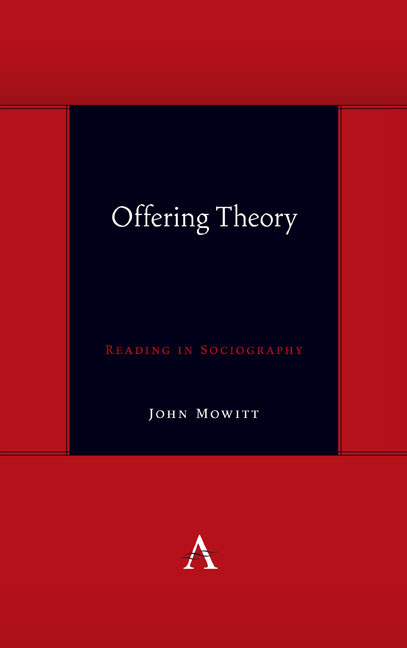Book contents
- Frontmatter
- Dedication
- Contents
- Acknowledgments
- The Pretext
- Introduction: Theory in Limbo
- 1 Queer Resistance: Foucault and the Unnamable
- 2 Stumbling on Analysis: Psychoanalysis and Everyday Life
- 3 Strangers in Analysis: Nationalism and the Talking Cure
- 4 “Jamming”
- 5 WWJD?
- 6 What Said Said
- 7 Apart from Theory
- 8 Conclusion: Theory Is Out There
- References
- Index
3 - Strangers in Analysis: Nationalism and the Talking Cure
Published online by Cambridge University Press: 14 August 2020
- Frontmatter
- Dedication
- Contents
- Acknowledgments
- The Pretext
- Introduction: Theory in Limbo
- 1 Queer Resistance: Foucault and the Unnamable
- 2 Stumbling on Analysis: Psychoanalysis and Everyday Life
- 3 Strangers in Analysis: Nationalism and the Talking Cure
- 4 “Jamming”
- 5 WWJD?
- 6 What Said Said
- 7 Apart from Theory
- 8 Conclusion: Theory Is Out There
- References
- Index
Summary
Must we mean what we play? Those familiar with Stanley Cavell's path to philosophy— he trained initially as a pianist— will hear in this rephrasing the matter around which the following reading of Julia Kristeva's meditation on nationalism, Strangers to Ourselves, will elliptically orbit. In Cavell's text, actually titled Must We Mean What We Say?, he elaborates a rejoinder to the tradition of logical positivism that, among other things, probes the role of intention in language use so as to pry apart saying and meaning, allowing for a robust form of ambiguity in human linguistic communication. Meaning does not exclusively adhere to sayings that are either true or false. Meaning can arise in ambiguity. Indeed, most ordinary language use is meaningful in precisely this way.
But is there something like ordinary piano playing (and it is worth noting that Cavell has written powerfully about improvisation)? To approach such a question it helps to phrase it under one's breath while reading Adorno’s fragment, “Music and Language.” Written in 1956 after he had resumed his teaching responsibilities at the University of Frankfurt, this piece, despite its terse density, explores provocatively what Adorno insistently, even anaphorically, calls the “resemblance” between music and language. It is clear that die Sprache in question is one we speak and write. Ordinary. Significantly, Adorno explores this resemblance (he also invokes the concepts of “analogy” and “similarity”) by contrasting musical expression and the language of intentionality, a contrast that does not deny intentionality to music, but that orients it beyond the event of communication. As Adorno says: “Every musical phenomenon points to something beyond itself […]” (Adorno 1994, 6). In a sense, music always says more than it means, but in this very excess it resembles language most closely. In the Livingston translation the point crystallizes in the concluding sentence: “It is by distancing itself from language that its [music’s] resemblance to language finds its fulfillment” (Adorno 1992, 6). In this distance lies the intention that Adorno seeks to attribute to ordinary language, suggesting, I will argue, that while one must mean what one plays, that meaning is perhaps even more ambiguous, more infectious, than the meaning Cavell contrasts to statements that purport to be either true or false.
- Type
- Chapter
- Information
- Offering TheoryReading in Sociography, pp. 59 - 84Publisher: Anthem PressPrint publication year: 2020



